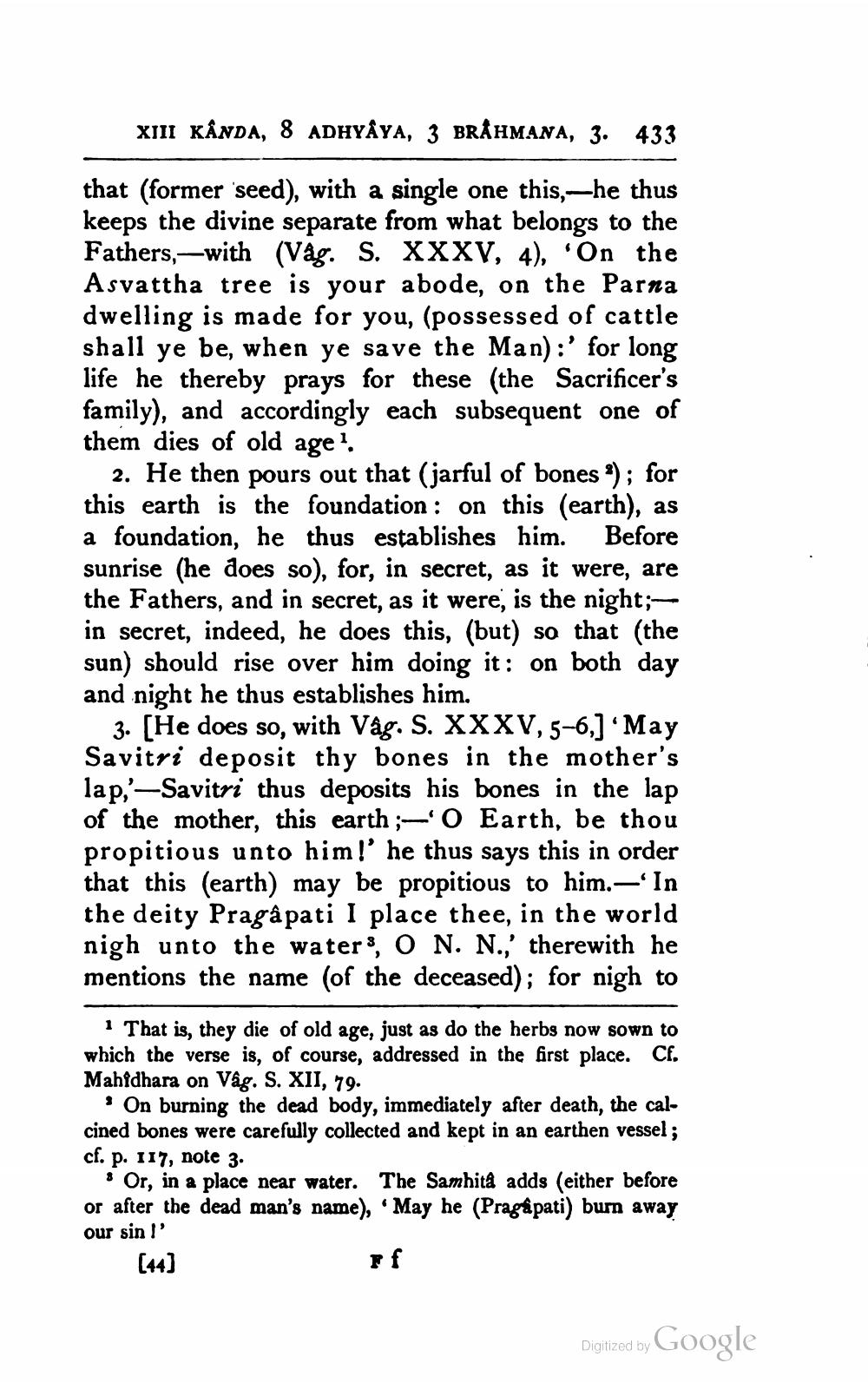________________
XIII KÂNDA, 8 ADHYAYA, 3 BRÅHMANA, 3. 433
that (former seed), with a single one this,-he thus keeps the divine separate from what belongs to the Fathers, with (Våg. S. XXXV, 4), 'On the Asvattha tree is your abode, on the Parna dwelling is made for you, (possessed of cattle shall ye be, when ye save the Man) :' for long life he thereby prays for these (the Sacrificer's family), and accordingly each subsequent one of them dies of old age 1
2. He then pours out that (jarful of bones 4); for this earth is the foundation : on this (earth), as a foundation, he thus establishes him. Before sunrise (he does so), for, in secret, as it were, are the Fathers, and in secret, as it were, is the night; in secret, indeed, he does this, (but) so that the sun) should rise over him doing it: on both day and night he thus establishes him.
3. [He does so, with Våg. S. XXXV, 5-6,] May Savitri deposit thy bones in the mother's lap,'-Savitri thus deposits his bones in the lap of the mother, this earth ;-'0 Earth, be thou propitious unto him!'he thus says this in order that this (earth) may be propitious to him.-In the deity Pragâ pati I place thee, in the world nigh unto the waters, O N. N., therewith he mentions the name (of the deceased); for nigh to
1 That is, they die of old age, just as do the herbs now sown to which the verse is, of course, addressed in the first place. Cf. Mahidhara on Vag. S. XII, 79.
On burning the dead body, immediately after death, the calcined bones were carefully collected and kept in an earthen vessel; cf. p. 117, note 3.
• Or, in a place near water. The Samhità adds (either before or after the dead man's name), "May he (Prag&pati) burn away our sin l'
(44)
Digitized by Google




